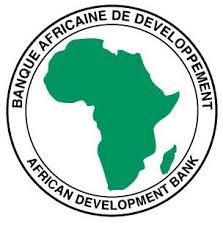
The African Development Bank (AfDB) signed an Aide Memoire with Borderless Alliance, a private sector-led coalition that promotes and facilitates regional trade to reduce transport costs and delays across West Africa, at the Bank’s office in Accra this week.
The signing of the Aide Memoire is underlined by a shared objective and significant alignment of interest in the areas of regional integration, enhanced intra-regional trade, reduced non-tariff barriers and related reduction in the costs of doing business, including reduced transport costs and delays across West Africa.
For the Bank, this is underpinned by its Integration Strategy for West Africa -- whose key pillars are linking regional markets and building capacity for effective implementation of the integration agenda, with emphasis on investments in regional transport infrastructure and related trade facilitation measures (such as one-stop border posts).
In pursuit of this objective, the bank has so far dedicated a cumulative amount equivalent to US$1.1billion for regional operations in West Africa, with the transport sector accounting for 41% of allocations while the financial sector received 18%, power sector (16%), and agriculture and rural development 12%.
Giving the rationale for the Bank signing the Aide Memoire with borderless Alliance, the Country Representative of the Bank in Ghana, Mrs. Marie-Laure Akin-Olugbade, said regional integration was from the time of the liberation fathers and is still at the centre of Africa’s vision.
“It was also a subject at the heart of what the African Development Bank was set up to do in 1963 and is explicitly contained in the Bank’s Charter. We are convinced that now, more than at any other time, is the moment to give a new impetus to this agenda,” she observed.
Mrs. Akin-Olugbade said Africa expects to become a new global growth-pole, with most countries graduating into robust middle-income economies and societies with low levels of poverty and income inequality. This objective among others, she said, has been appropriately amplified by the Bank’s flagship blueprints like the new Ten-Year Strategy, regional Integration strategy, and the complementary region-specific West Africa Regional Integration Strategy paper approved in 2011.
She stated that at the moment the Bank commits almost US$2billion a year to economic integration, and added that nearly a quarter of the Bank’s work builds both the hard and soft aspects of regional infrastructure.
On the investment side, AfDB focuses on investments in trade-related infrastructure, transport, and fiber-optics and the implementation of the Program for Infrastructure Development in Africa (PIDA).
“For the first, Africa has a coherent blue-print for transformation of the continent’s infrastructure, approved by the African Heads of State and Government in Addis Ababa in January 2012,” she noted.
A total of 51 priority regional infrastructure projects -- worth some US$67.9billion -- in energy, transport, ICT and trans-boundary water constitutes the PIDA Priority Action Plan to be implemented by the 2020.
In West Africa, she said, the Bank’s support for regional integration rests on two pillars; namely linking regional markets and building capacity for effective implementation of the regional integration agenda.
Pillar-one supports investments in regional transport infrastructure, transport and trade facilitation measures, as well as regional energy production and integrating energy markets.
She said the Bank is already active in West Africa in a number of areas, related to among others trade facilitation: trade and transport corridor projects, from which experience can also be tapped; the Abidjan Lagos corridor; and plans for the Trans-Gambia Bridge corridor.
Statistics on intra-regional trade as a percentage of total trade stood at 70% in the European Union; 32% in North America; 47% in developing Asia; 27% in Latin America and the Caribbean; and only 10% in Africa.
The low ratio of intra-African trade despite rising intra-African trade values has been traced to some tariff and non-tariff barriers to trade. Principal among the barriers are poor transportation networks; cumbersome import and export procedures and border crossing problems; limited use of information and communication technology (ICT); limited involvement of the private sector in the design of programmes intended to raise intra-regional trade; and poor trade settlement systems and financial encumbrances, among others.
In West Africa alone, the cost of doing business is one of the highest in the world. It is characterised by a high incidence of informal payments. According to the 15th report by the Improved Road Transport Governance Initiative (IRTG), there are between 1.8 and 3.2 checkpoints per 100km in West Africa.
A consignment of goods moving along the West African corridors can expect significant delays, ranging from 18 to 29 minutes per 100km, which equates to 7 hours of delays per average trip. Bribes collected by customs, police, gendarmerie, and other uniformed services range from US$3 to US$23 per 100km (close to US$200 per average trip).
The President of Borderless Alliance, Ziad Hamoui, said it is Borderless’ dream to materialise the “ECOWAS of People” vision -- a West Africa where goods, people, capital and services move freely through the region, from Dakar to Abuja and from Tema to Bamako.